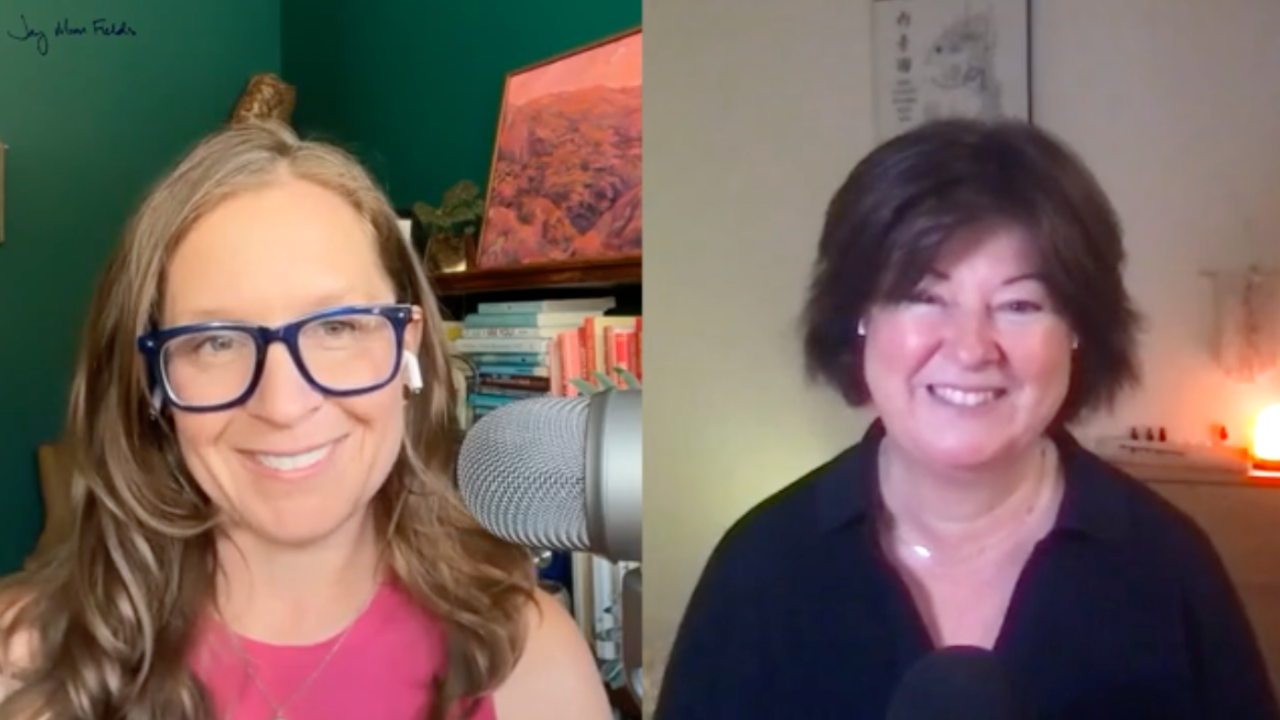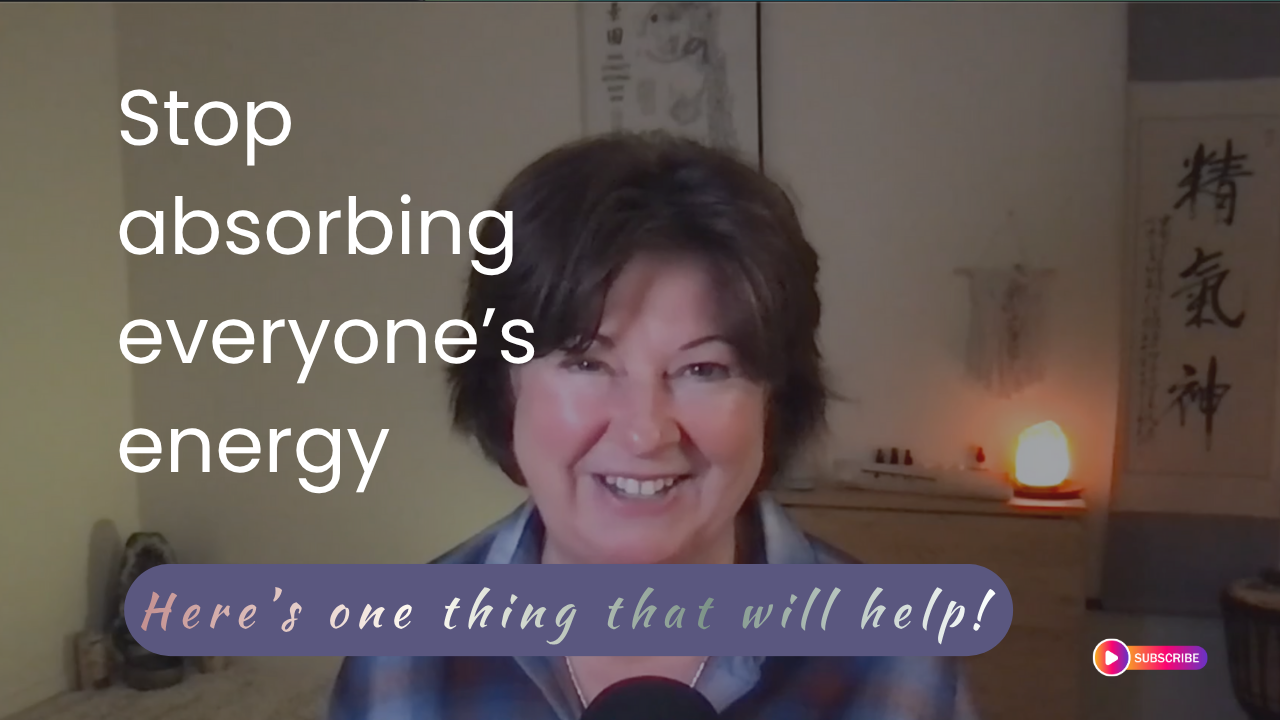Strategies to Escape Perfectionism and Cultivate Healthy Momentum | ep 98
Nov 27, 2024In this episode I'm exploring the root of perfectionism, and sharing 5 practical strategies to help you create healthier and more sustainable momentum for all you do in your life. Thank you for joining me! Please share your insights, comments and questions!
0:00
Did you know that 84 to 92% of people deal with perfectionism? Are you one of them? If you are, please join me today, because I'm going to be sharing some great insights to help move us from perfectionism to healthy striving.
I'm so glad you're here. Welcome to the Art of tuning in Podcast. I'm Maria Furlano, and I have struggled with perfectionism a long time in my life, until I learned how to shift my mindset.
And perfectionism is a huge mindset issue, and so that means the positive part of that is that if we learn how to shift our mindset, we can shift the perfectionism in our life. It is causing us a lot of times to be self sabotaging in our life. So what do I mean by that? Well, when we are perfectionist, meaning we push, we strive, it has to be perfect.
A lot of times we have also what's called an all or nothing mindset. A lot of perfectionists won't do anything unless they feel they 100% can succeed at it, but that's setting themselves up, number one, not to experience a lot of things. And secondly, we don't know if we're going to succeed at something unless we try. So that perfectionism can cause us to not partake in things or to shy away from things that we may be great at, that we may totally enjoy, but if we're afraid of looking bad or not completing it or not doing enough. One of the things that I will ask people is, are you an all or nothing person?
Meaning, do you only start a project if you feel that you can do it 100% that's number one. And if you start something, for example, if I give you a meditation routine, do you feel that you have to do it every single day at that exact time, for that exact minute, and if you wander from that at all, if you miss a day, if you miss two days, do you say, Oh, well, I can't do it. I'm done. That's an all or nothing mindset. And what it does is it prevents people from building any kind of momentum in their life. And when we build momentum, when we do things as I've talked about so many times, in shorter bursts, meaning that we give ourself a chance. We step in, we do something new, we allow our energy to shift, we allow ourself to experience something. And then we step away and we move into our life, we can begin to create changes very rapidly, if we just keep with the short momentum.
Momentum is not something that you wake up in the morning having momentum is something that really has to be trained. You have to allow yourself to have it. And if you are a perfectionist, if you are someone who is an all or nothing mindset type of person, it's very hard to build momentum, because you're going to constantly self sabotage yourself because you feel, Oh, at wasn't good enough. I'm not doing it well enough. I'm never going to be good at this. And so it's very important to look at the all or nothing mindset and the acts of perfectionism first before you expect yourself to be able to move into momentum.
I want to share with you five things today that you can begin to look at right away, to check in with your perfectionist attitude, or your all or nothing attitude, and begin to be much more gentle with yourself. Because what will happen when you are more gentle with yourself and when you can understand where you're coming from, how you mentally are thinking every day, how you're treating yourself every day, you will gain more energy.
As you can probably imagine, and I know I experienced this myself, when you're dealing with perfectionism, when you're dealing with that all or nothing mindset, meaning, if I can't do it perfect, I failed or I'm not going to do it. It's exhausting. It's mentally exhausting. It's physically exhausting, especially because of all of the physical tension that comes in the body. When you look at being perfect, when you look at needing to complete something that's perfect, it's a very pushed energy.
So if you can feel that in your body, it's very pushed and focused, and I have to keep going, whether I'm tired, whether I'm sick, whether I just don't feel like it, whether I need a break, it's Go, go, go. That energy really escalates our nervous system to go into overload, overwhelm our body becomes 10. Sense, we don't have the softness, the fluidity, our energy doesn't flow. And so what we do is we're just draining energy. We're draining energy and we're stagnating energy because we are just so tense. If you do that for a very short period of time, you can recover.
But if this is a point of your life, a point of your focus, something that you just tend to do, something you've done for many, many years you've just pushed through. Keep going. I'm going to keep going. Your body will start to rebel. Your body will start to hold that energy more and more, and you'll become more and more depleted. So dealing with perfectionism and dealing with that all or nothing mindset that allows you to self sabotage really good things is very valuable for your health, for your mental well being, and for completing those wonderful things that you actually do want to do, for really showing off your skills as a professional coach who works with people, especially on their energy levels and their mindset. When I'm working with people who are high achievers high performers, one of the biggest fears that comes up when we're beginning to change their mindset about perfectionism and all or nothing and taking care of themselves, is the fear that I'm going to lose my edge.
Even though they know that they really want to be feeling better than they are, there's a fear that comes up that if I relax, if I learn to relax, if I learn to look at these things, I'm going to be off my game. I'm going to lose my edge, I'm going to lose my momentum, I'm not going to be perfect, right? So it comes back to that perfection, and it's a real fear, because especially when you are someone who is actively achieving things, but you're exhausted in the process, the only thing you know is how you've been achieving isn't working anymore, but you don't know how to do that achieving any other way. So it does bring up a lot of fear, and it's very real and it's very normal.
There is a recovery time that has to happen. There is space that is required that you make for yourself to allow your energy to recover, to be refilled. It's like we need to recharge that battery, because your brain and your nervous system is so drained that it needs to be rebooted so that you can think another way. And of course, there are lots of tools to do this. It's what I specialize in. I want you to know that this is hopeful, that there are ways to help this, to make you feel great.
So let's look at what you can do, starting tomorrow morning...
#1
When you wake up tomorrow morning, if you want to dive into this year with me, one of the things that I would ask you to look at is, what are you thinking about the moment you open your eyes, what are you thinking about? What images are going through your body? How does your body respond? And when you go to bed at night and you close your eyes, same thing, because when we close our eyes, it doesn't mean that we just go to sleep a lot of times when we're dealing with a lot of stress in our life, or a lot of I need to do. I need to get done. You know, Do? Do? Do type of things.
We take that to bed with us, and we can be very critical of our day. We can be very critical of ourselves. We can have that to do list running through our minds. So it's from the moment you wake up throughout the day. Of course, we're going to look at how you are thinking and acting, but right now, just tomorrow morning, how do you wake up?
8:59
What do you think about, how does your body feel? And when you go into the bathroom and you look in the mirror, what do you think about, what do you say to yourself now doesn't have to be out loud. We talk to ourselves all the time. In our mind, we are so loud in there, you just have to hear. What are you saying for me, the moment that I did this, I was shocked at what I was waking up with. I was shocked at what was just going off in my mind, and the not only the criticizing of myself, but the to do list, the should list, I need to do this. And all of a sudden, before I was even dressed, I mean, before I even brushed my teeth, all of a sudden, I had my whole day full of stress. It's really real. It happens.
And so when you can start to. Observe yourself, then we can start to make changes. So when you wake up, you're going to observe yourself, and you're going to write it down what you really thought about. You can be really honest with yourself. It could be one word, it can be an image that you saw, but you really want to look for where there shoulds in there where I need to do this. I have to do this. I gotta get this done. Oh, I didn't do this. Oh, my goodness. Like there's all these things that go through. And how does the body feel? How do your shoulders feel? How does your neck feel? That is a big indicator. Shoulders and neck are pulled so much tension, our back, our hips, all of these places, all of our body, but there's these little areas that we can tune into first before we scan our whole body. How does your breathing feel? Is your breathing all the way up here? Are you anxious?
I also suggest to people that they don't have an alarm clock. That is scary. So what I mean by that is your alarm clocks can be really loud, they can be high pitched, they can be alarming, right alarm clock, but when it goes off, you are jolted out of this beautiful rest mode. Your heart rate is a certain way, and now the heart rate changes, it's jolted. Your nervous system is calm, and now the nervous system is activated, and that's not how we want to wake up. We want to wake up in a soothing manner, to set our day the way we want our day to go. We want to have control over what our day is going to be like, so having beautiful bird sounds, or having soothing music, or having a lower pitched frequency wake you up, or those wonderful lights that come on that light the whole room, there are different ways, and I would highly encourage you to look at changing your wake up alarm system is if it isn't supportive and soothing to you, because that will set your nervous system into a certain frequency, and it's very hard to then shift that back. You have to go through a whole calming way, and it's just really not healthy for you. And after you spend some time really being honest with how you wake up, what you think about, what you feel when you go to the mirror and you look at yourself, what's going on in your mind. You know the mirror in the morning is a beautiful thing. And let me tell you why your eyes, your eyes are the window to your soul when you look in the mirror, look into your eyes and let your soul talk to you.
12:43
Be gentle with yourself. Know that you are your soul. Your soul connects with you, and allow it to connect with you in the morning, if you can just move into that space where you connect with yourself in a gentle way, these thoughts that are going on will start to disperse, and they will start to calm down. It may be for just a moment, and then you're back to those other chronic thoughts, but it's a step, and the more steps you take doing that, the more you build upon that, and the more you begin to change your mindset. The other thing that I'll share with people is to create beauty in their bedroom, so that when you wake up, you have something in front of you, the side of you, wherever it is that's in your view, that is beautiful to you, that is soothing to you, that is nourishing to your soul. It could be artwork. It could be a picture, it could be a flower, it could be anything that is beautiful to you. It could be a beautiful colored wall.
It could be anything and to have orange essential oil or grapefruit essential oil or bergamot essential oil in your room. And as you wake up, you take it off and you take a little whiff of one of those, because orange and grapefruit are what we call Qi elevators, Qi movers. And chi means energy. So they elevate your energy, and they move your energy. They lift your spirits.
Bergamot actually is great for calming stress, and so it's beautiful. It's my favorite, and it's my go to so if you have these little, tangible, physical tools around you, you can begin to shift your mindset in an easier way.
So beauty and beautiful smells and taking a moment to talk to your soul, the second thing we want to look at is your all or nothing mindset. We really want to hone in on that. Is this something that you struggle with? And if it is, why? Why are you stopping yourself? If it's not perfect, and it really boils down to the root, being control, because. Control, perfectionism, control all or nothing, meaning I don't do it perfectly or I don't do it.
It's all about control.
#2
So second thing we really want to look at is the control in your life. Why do you feel you need to control so much? Where is that coming from? And how can you allow yourself to let go to really look at do you need to hold on to this control so much? Because a lot of times, needing to control comes from a real other root issue of not having support, or not feeling that you have support or not allowing yourself to have support.
#3
The third thing that's always good to look at is, when did this all or nothing control perfectionism start in your life? Was there something that triggered it? And can you heal that? And can you get help in healing that? Sometimes when we know the origin of something, we can go back, unwind it and allow it to no longer be so significant in our life, which helps to change how we act.
#4
Now, the fourth thing we want to talk about is what motivates you. Now, a lot of people have gone through life self motivating themselves, through fear, through worry and through negative self talk. It's very common, more common than you might think. And there's a big difference between having high standards and having what's called Healthy striving, meaning that I want to do well. I want to create good things. I want to do my best. I want to see what I have to offer. I want to see what I can give. I want to expand myself. I want to keep myself moving forward and learning new things that's healthy, striving that's beautiful. Big difference between negative self talk, worry, fear, keeping you going. I must do better, right? That's what we want to look at. What motivates you, truly, what motivates you. And if you can't find truly beautiful, healthy things that motivate you to be doing what you're doing in your life, then it's time to re evaluate them.
#5
Number five is looking at what do you really want? A lot of times, we've been doing the same thing in our life over and over again, the same way, and we don't know any different, and we don't really think it can change, but it can. We can change our mindset in a moment and then just put those tools into use. But we have to believe that we can. And as we move through our life, it is very normal that what's important to us changes.
What was important to us a year ago, five years ago, certainly 10 years ago, are not probably as important to us now. If they are, they still shift and change along the way. So there's different nuances to look at. There's different things to explore within that. So what is most important to you? Now for some people, their life becomes more simplified, and when we have this strong desire inside ourselves to simplify our life, it can be overwhelming when we're caught up in the same patterns of doing and giving, because we're at direct odds with what it is that we want. So very important Be honest with yourself, what is it that you really want now in your life? What's most important to you now?
So it's getting out of those old ways of thinking and doing things and just being automatic and learning to have curiosity. Big thing, when you go through these five steps, it's not about being hard on yourself. It's not about doing more or doing better.
It's about having curiosity about, what could I shift that would bring me more energy, that would allow me to really bring about the things I want to bring about in the best ways, in the most exciting ways, to have balance in my life. And what we find is that people will achieve more when they are on balance, because they have the energy to do it. They have a longer quality of life, not about the output, about the quality of the time you spend, about how you feel every day. But how do you vibrate? How are you glowing? How are you being in your life?
19:46
That's living, that's soul growth, that's energetic alignment, and I would really love to know if you struggle with perfectionism, if you struggle with an all or nothing mindset, what are your questions? Share your insights below (on my YouTube Channel > https://www.youtube.com/mariafurlano)
I hope you'll explore these five insights. I hope they'll bring you greater peace, greater alignment, greater connection with your soul, because you are amazing, and everything you're doing is enough. I'll see you soon. Come on over and join me at the art of tuning in.






